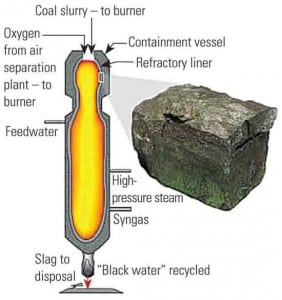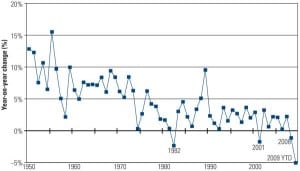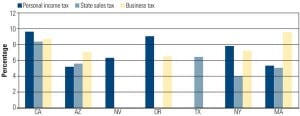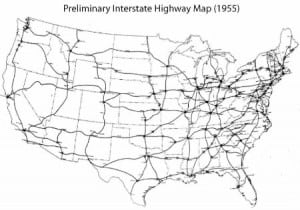-
Coal
Advanced Refractory Lining Improves Gasifier Reliability
Successful testing of a new refractory lining material developed by the Office of Fossil Energy’s National Energy Technology Laboratory (NETL) could lead to higher reliability and improved economics of gasification technology.
-
Commentary
Interconnection Animus: Do Regulatory Procedures Create a “Tragedy of the Commons”?
What’s the real “tragedy of the commons?” It is legal, regulatory, cultural, or political? And is there is way out?
-
Smart Grid
What Do Customers Expect from the Smart Grid?
Xcel Energy’s SmartGridCity enterprise in Boulder, Colo., is one of the most talked-about smart grid projects. Here’s what some Boulder utility customers are saying about it.
-
Solar
A New Foundation for Future Growth
As the economy begins to grow again, the banking industry continues to stabilize, and lawmakers work on finalizing climate change legislation, the decisions made in 2010 will lay the foundation for the power industry for decades to come.
-
Nuclear
High-Temperature Gas-Cooled Reactor Concept Moves Forward
Researchers from the Idaho National Laboratory (INL) say they have developed a new type of nuclear fuel for use in next-generation high-temperature gas reactors that produces less waste — a major step forward for the Next Generation Nuclear Plant (NGNP).
-
Commentary
For Utilities, Derivatives Is Not a Dirty Word
Financial derivatives make sense for the electricity business, providing protection against price swings, and don’t require additional regulation.
-
Solar
Which Country’s Grid Is the Smartest?
The U.S. isn’t the only country evaluating and implementing elements of smart grid technology. In fact, it could be argued that other nations are much farther along the path to a comprehensive, technically advanced system for integrating renewables, managing load, and creating a more flexible power grid.
-
Business
Dollars and Dirt: Investing in Infrastructure
The familiar saying "as goes California, so goes the nation" seems to apply to the many states that have been unable to invest in infrastructure improvements because they are crushed by debt and shrinking revenues. Will California and energy project developers continue to invest in energy infrastructure in 2010 given the limited availability of private capital, shaky state finances, and shifting regulatory climate?
-
News
Predicting Hurricane-Related Outages
Researchers from John Hopkins and Texas A&M universities say that they have found a way to accurately predict power outages in advance of a hurricane. Computer models developed using data from Hurricane Katrina and four other destructive storms could save utilities substantial amounts of money and help facilitate rapid restoration of power after a storm, they say.
-
Commentary
For a Secure Energy Future, Obama Must Be Like Ike
President Dwight David Eisenhower built the interstate highway system more than 50 years ago. Is it time for the U.S., when it comes to the electric power grid, to be like Ike?
Search







